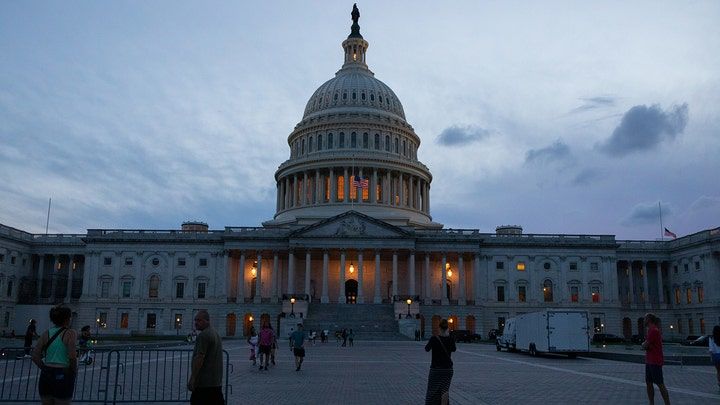
Democrats' Inflation Reduction Act could mean lower wages for millions of Americans
Findings from the Tax Foundation, a nonpartisan group that advocates for lower taxes, show the initiative could trim 0.1% from workers' wages over the long term. It would also eliminate roughly 29,000 full-time positions from the U.S. economy.
The Inflation Reduction Act of 2022, passed by Senate Democrats on Sunday, would raise an estimated $739 billion over the next decade by increasing IRS funding, establishing a 15% minimum corporate tax targeting companies' book income, allowing Medicare to negotiate prescription drug costs and imposing a 1% excise tax on corporate stock buybacks.
Revenue raised by the policies would go toward initiatives designed to combat climate change and curb pharmaceutical prices, as well as efforts to reduce the nation's $30 trillion debt. It includes about $433 billion in new spending, while roughly $300 billion of the new revenue raised would go toward paying down the nation's deficit.
"This is the action the American people have been waiting for. This addresses the problems of today — high health care costs and overall inflation — as well as investments in our energy security for the future," Biden said in a statement on July 27.
The Tax Foundation analysis showed the spending bill could generate about $676 billion over the next decade before accounting for the expanded tax credits for individuals and businesses. When factoring those in, the measure would add about $324 billion to the nation's coffers from 2022 to 2031.
Despite that, the legislation would have little impact on the broader economy, decreasing household income by less than 0.05% over the next decade. The measure would also reduce the capital stock by about 0.3%.
 The U.S. Capitol building is seen on the evening of August 6, 2022, in Washington, D.C.
The U.S. Capitol building is seen on the evening of August 6, 2022, in Washington, D.C.
The "most damaging" tax provision included in the bill is the 15% minimum tax on book income, according to the Tax Foundation analysts: That levy would reduce GDP, the broadest measure of goods and services produced in the nation, by 0.3% and cause wages to decline by 0.1%. The tax increase on corporations would cost the economy roughly 23,000 jobs.
"Inflation is driven by expectations regarding the likelihood that the federal government will be able to repay its debt over the long term, which is a function of the expected performance of the economy, tax collections, and spending," the Tax Foundation analysis said. "By reducing long-run economic growth, the bill worsens inflation by constraining the productive capacity of the economy."
Democrats say the legislation will help to reduce inflation and provide relief to Americans in the form of lower health care costs, while Republicans argue the measure does little to tackle higher prices – and could actually exacerbate the crisis.
The nonpartisan Congressional Budget Office said in an analysis last week that the spending bill will have a negligible impact on inflation.










